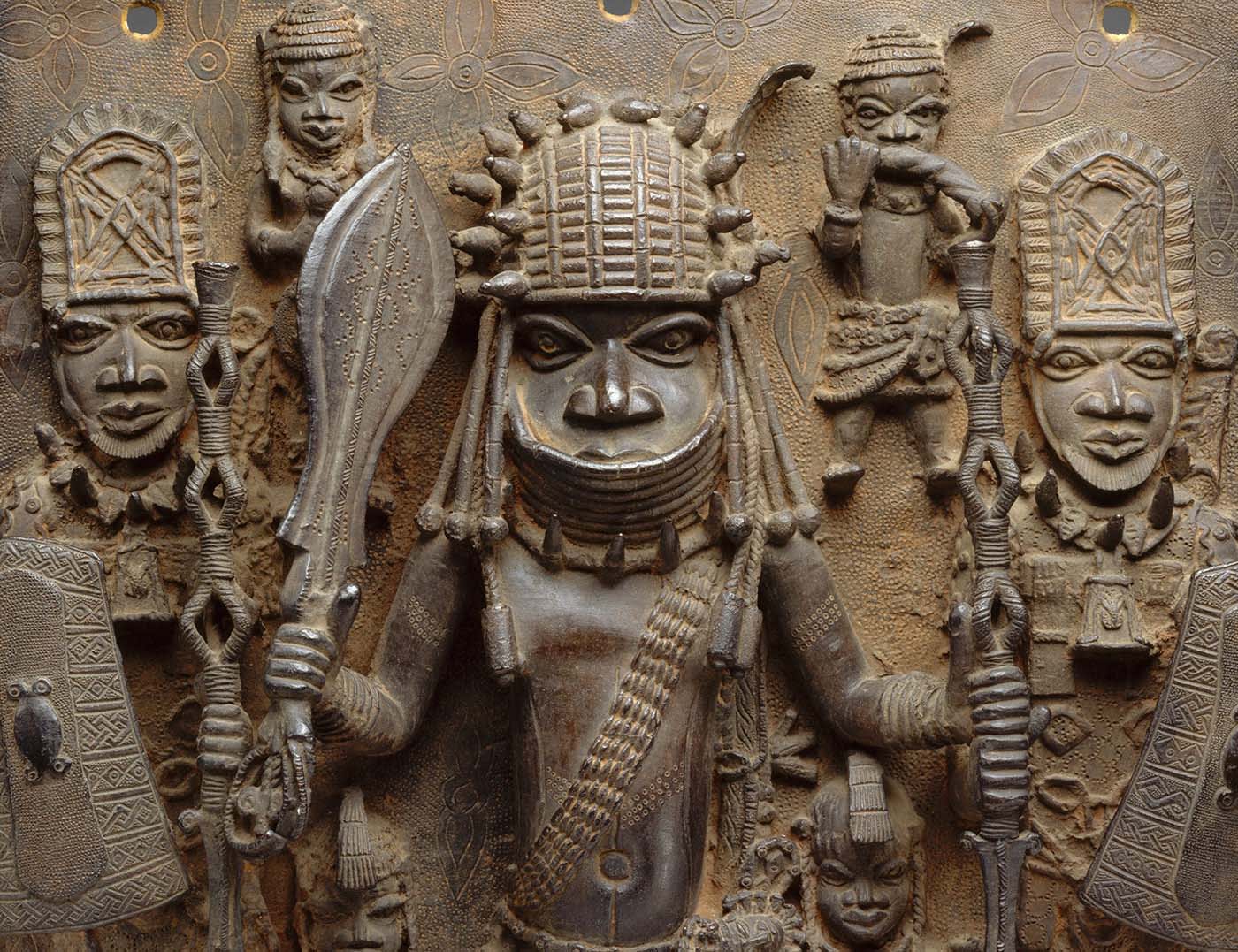
In the heart of present-day Nigeria lies a treasure trove of history and culture, preserved within the ancient Kingdom of Benin. Renowned for its mastery of intricate bronze sculptures, this kingdom once flourished as a center of art, commerce, and royal power.
The Kingdom of Benin, not to be confused with the modern country of Benin, thrived from the 13th to the 19th century in what is now southern Nigeria. It boasted a sophisticated society with a highly organized political structure, skilled artisans, and a robust trading network that extended across West Africa and beyond.
One of the most distinctive features of Benin’s cultural heritage is its exquisite bronze sculptures. These artworks adorned the royal palaces, commemorated significant events, and celebrated the power and prestige of the kingdom’s rulers. Crafted using the lost-wax casting technique, a process involving the creation of a wax model encased in clay, these sculptures exhibit remarkable intricacy and detail.
The subjects of Benin bronze sculptures varied widely, ranging from depictions of kings and warriors to scenes of everyday life and mythological beings. Each piece served as a testament to the artistic prowess and cultural sophistication of the Benin people.
The production of bronze sculptures was not only an artistic endeavor but also a deeply symbolic and ritualistic practice in Benin society. Artisans, known as “Iguneromwen,” held a revered status within the kingdom, and their craftsmanship was regarded as a sacred duty.
Sadly, much of Benin’s artistic heritage was looted during the punitive expedition of 1897 when British forces invaded the kingdom and seized thousands of bronze artworks. Many of these sculptures found their way into museums and private collections around the world, sparking debates over cultural restitution and heritage preservation.
However, efforts are underway to reclaim and preserve Benin’s cultural legacy. In recent years, there has been a renewed focus on researching, documenting, and repatriating looted artifacts, allowing the world to appreciate the beauty and significance of Benin’s bronze sculptures in their original context.
Today, the Kingdom of Benin stands as a testament to the enduring legacy of Africa’s rich and diverse cultural heritage. Its bronze sculptures continue to captivate and inspire people around the globe, serving as a reminder of the ingenuity, creativity, and resilience of the Benin people.
